People belonging to a narcissistic family tree end up having hugely dysfunctional and traumatic childhoods, which haunts them even when they become adults.
Clinical experience and research show that adult children of narcissists have a difficult time putting their finger on what is wrong because denial is rampant in the narcissistic family system.
“The typical adult from a narcissistic family is filled with unacknowledged anger, feels like a hollow person, feels inadequate and defective, suffers from periodic anxiety and depression, and has no clue about how he or she got that way.” — Pressman and Pressman, The Narcissistic Family
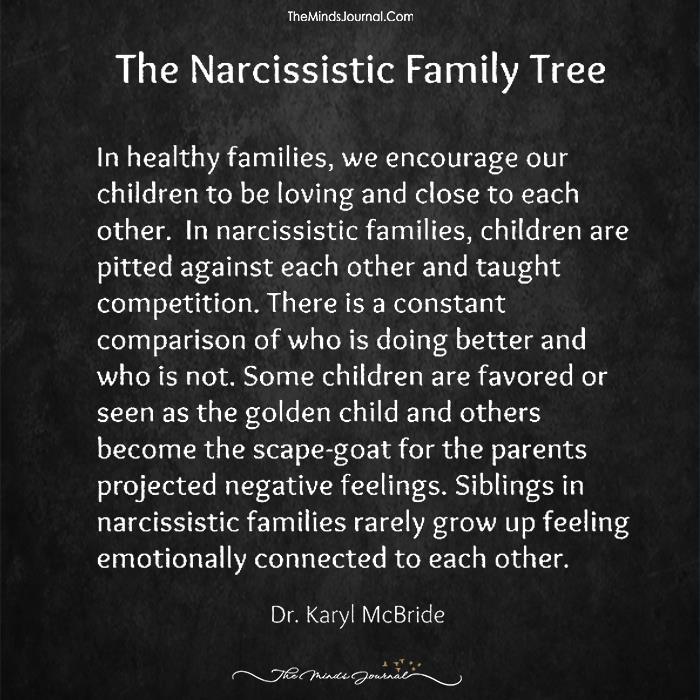
It is common for adult children of narcissists to enter treatment with emotional symptoms or relationship issues, but simultaneously display a lack of awareness of the deeper etiology or cause.
The narcissistic family hides profound pain. Such families tend to operate according to an unspoken set of rules. Children learn to live with those rules, but never stop being confused and pained by them, for these rules block their emotional access to their parents.
They basically become invisible—neither heard, seen, or nurtured. Conversely, and tragically, this set of rules allows the parents to have no boundaries with the children and to use (or abuse) them as they see fit.
The following are some common dynamics of this profoundly dysfunctional intergenerational system. (Keep in mind there are always degrees of dysfunction on a spectrum depending on the level of narcissism in the parents.)
Related: How To Deal With A Dysfunctional Family and Find Your Happiness
12 Common Dynamics Of A Narcissistic Family Tree
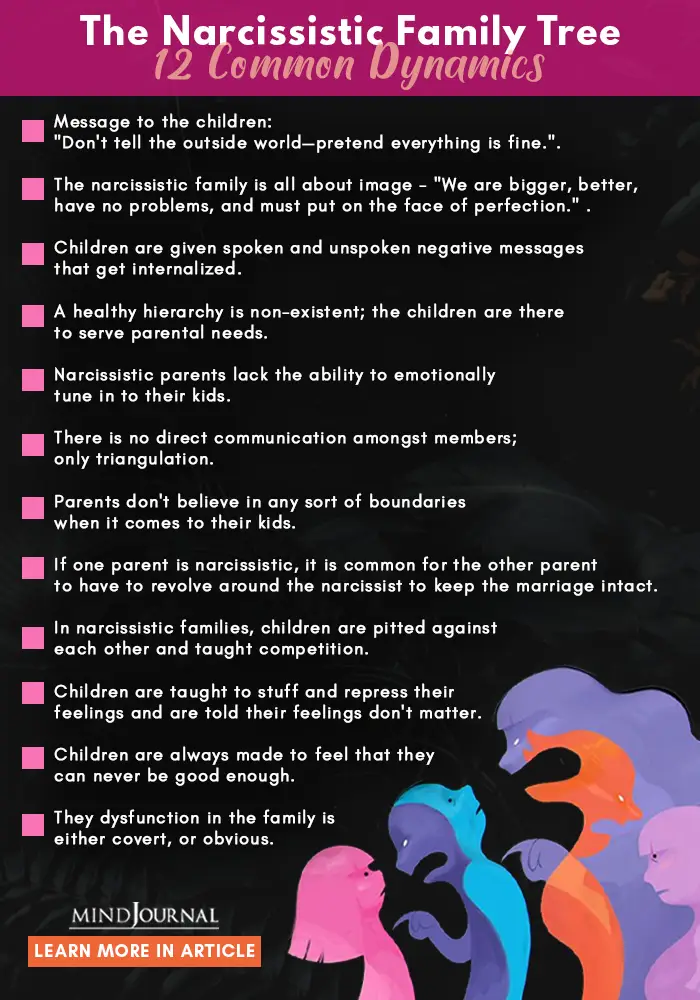
1. Secrets.
The family secret is that the parents are not meeting the children’s emotional needs, or that they are abusive in some way. This is the norm in the narcissistic family. The message to the children: “Don’t tell the outside world—pretend everything is fine.”
2. Image.
The narcissistic family is all about image. The message is: “We are bigger, better, have no problems, and must put on the face of perfection.”
Children get the messages: “What would the neighbors think?” “What would the relatives think?” What would our friends think?” These are common fears in the family: “Always put a smile on that pretty little face.”
Related: How Toxic Family Dynamics Can Cause C-PTSD In Emotionally Intense Children
3. Negative Messages.
Children are given spoken and unspoken messages that get internalized, typically: “You’re not good enough”; “You don’t measure up”; “You are valued for what you do rather than for who you are.”
4. Lack of Parental Hierarchy.
In healthy families, there is a strong parental hierarchy in which the parents are in charge and shine love, light, guidance, and direction down to the children. In narcissistic families, this hierarchy is non-existent; the children are there to serve parental needs.
5. Lack of Emotional Tune-In.
Narcissistic parents lack the ability to emotionally tune in to their kids. They cannot feel and show empathy or unconditional love. They are typically critical and judgmental.

6. Lack of Effective Communication.
The most common means of communication in narcissistic families is triangulation. Information is not direct. It is told through one party about another in hopes it will get back to the other party.
Family members talk about each other to other members of the family but don’t confront each other directly. This creates passive-aggressive behavior, tension, and mistrust. When communication is direct, it is often in the form of anger or rage.
Related: 11 Ways To Cope With A Toxic And Estranged Family Relationship
7. Unclear Boundaries.
There are few boundaries in the narcissistic family. Children’s feelings are not considered important. Private diaries are read, physical boundaries are not kept, and emotional boundaries are not respected. The right to privacy is not typically a part of family history.
8. One Parent Narcissistic, the Other Orbiting.
If one parent is narcissistic, it is common for the other parent to have to revolve around the narcissist to keep the marriage intact.
Often, this other parent has redeeming qualities to offer the children but is tied up meeting the needs of the narcissistic spouse, leaving the children’s needs unmet. Who is there for them?
9. Siblings Not Encouraged to Be Close.
In healthy families, we encourage our children to be loving and close to each other. In narcissistic families, children are pitted against each other and taught competition. There is a constant comparison of who is doing better and who is not.
Some are favored or seen as “the golden child,” and others become the scapegoat for a parent’s projected negative feelings. Siblings in narcissistic families rarely grow up feeling emotionally connected to each other.
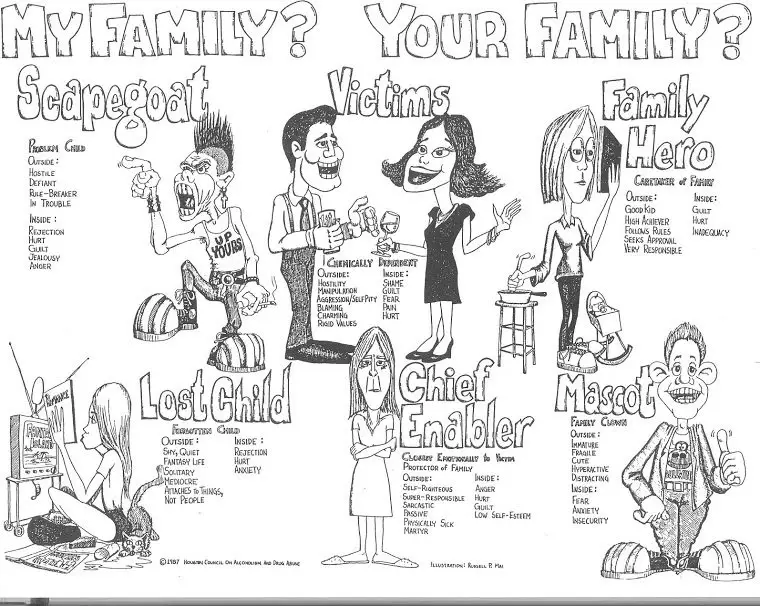
10. Feelings.
Feelings are denied and not discussed. Children are not taught to embrace their emotions and process them in realistic ways. They are taught to stuff and repress them and are told their feelings don’t matter.
Narcissistic parents are typically not in touch with their own feelings and therefore project them onto others. This causes a lack of accountability and honesty, not to mention other psychological disorders. If we don’t process feelings, they do leak out in other unhealthy ways.
Related: The Narcissistic Family Roles: The Roles Cast by the Narcissist
11. “Not Good Enough” Messages.
These messages come across loud and clear in the narcissistic family. Some parents actually speak this message in various ways; others just model it to their children.
Even if they display arrogant and boastful behavior, under the veneer of a narcissist is a self-loathing psyche—that gets passed to the child.
12. Dysfunction—Obvious or Covert.
In narcissist families, the dynamics can be seen or disguised. The dysfunction displayed in violent and abusive homes is usually obvious, but emotional and psychological abuse, as well as neglectful parenting, are often hidden. While the drama is not displayed as openly to the outside world, it is just as, if not, more damaging to the children.
Reviewing these dynamics, one can see how this kind of family can look pretty but be decaying at the same time. If you recognize your family in this description, know that there is hope and recovery. We can’t change the past, but we can take control of the now. We do not have to be defined by the wounds in our family systems.
As Mark Twain defines the optimist, I see the recovering adult child: “A person who travels on nothing from nowhere to happiness.”
We can create a new life that will flow through us to the future and stop the legacy of distorted love learned in the narcissistic family. If we choose recovery, we can defy intergenerational statistics.
We Can!
Want to know more about the narcissistic family tree and narcissistic family dynamics? Check this video out below!
Written By Dr. Karyl McBride, Ph.D., L.M.F.T. Originally appeared on Psychology Today Printed with Permission from the author
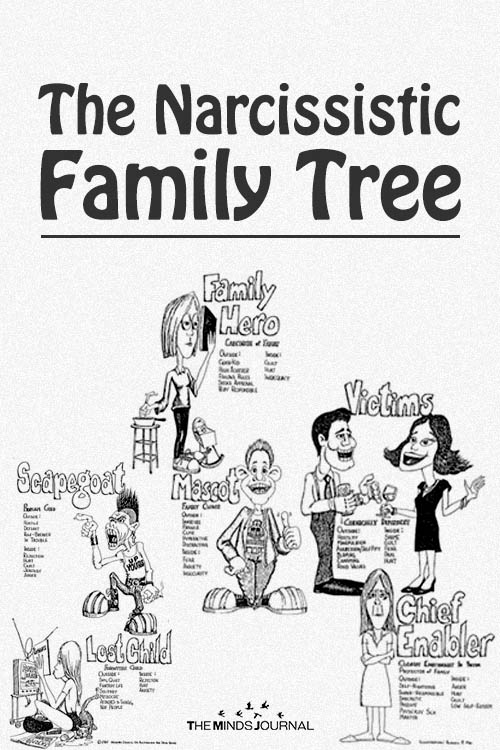
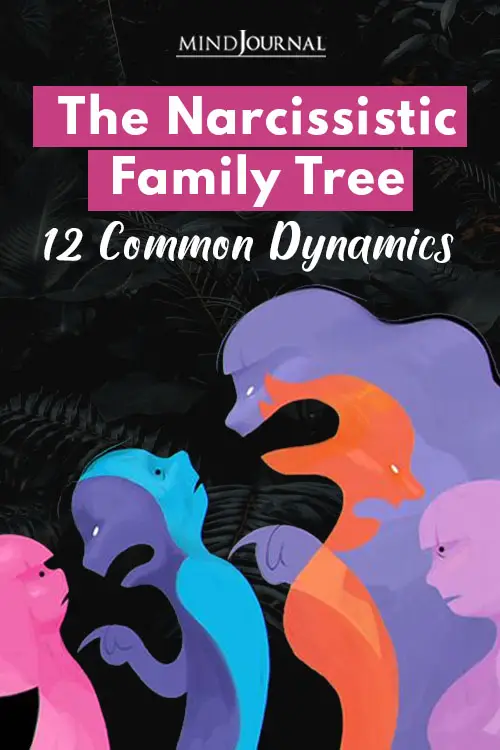
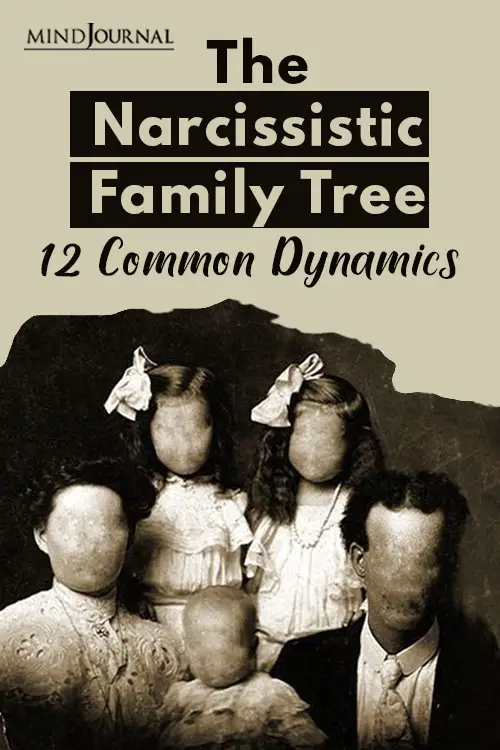
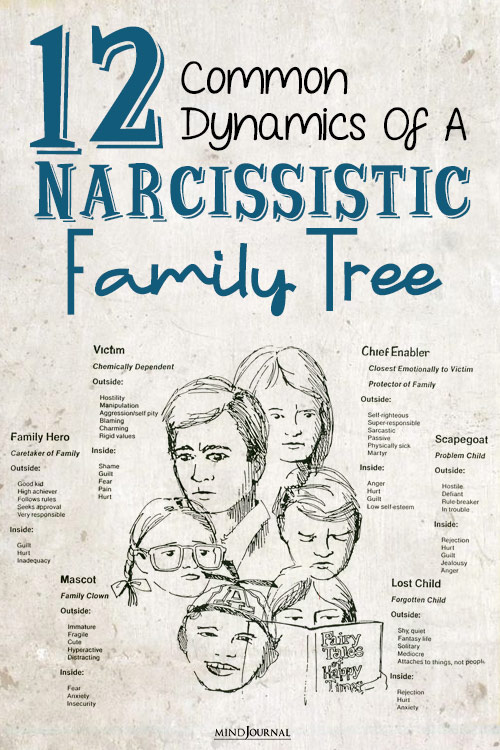
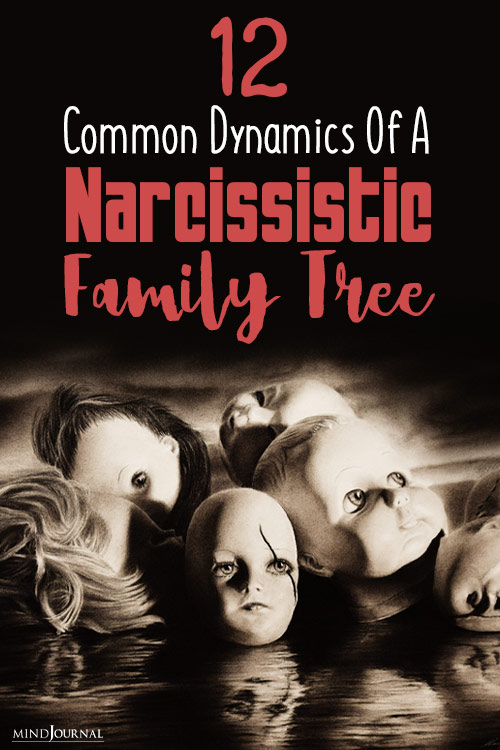
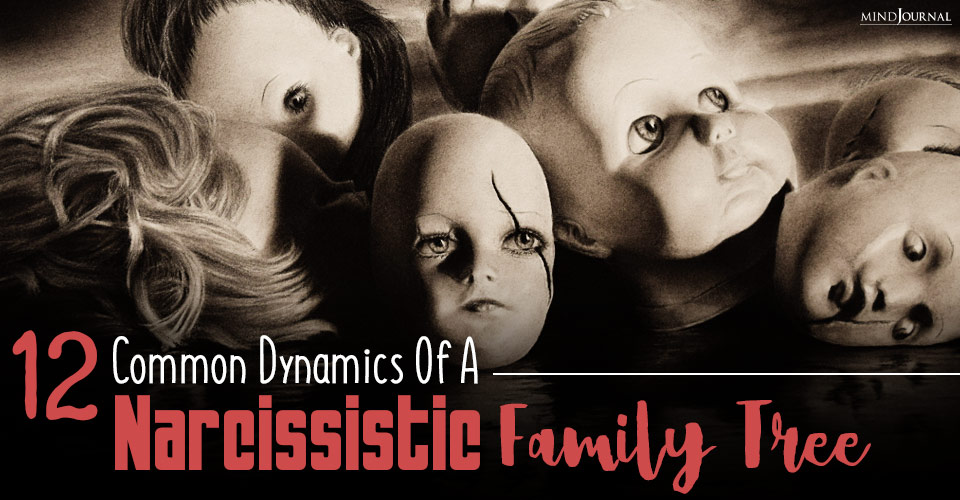







Responses
I am the lost child, my siblings were much older, 13 yrs difference to the nearest. Then my brother and other sister were 2 yrs apart from her. I read this and just wow it all makes so much since now. I was the baby or what was said constantly “your just a baby”. The siblings ghostlighted each other all their lives and mine. They’d go two or 3 yrs not talking then maybe a year talking just back and forth our whole lives. Our grandmother was an extremely narcissistic. My father was to a point. My mom suffered so much abuse from all of them it was unreal. But you were right about comparing us! That and the you’re not good enough to do that or that doesn’t make enough money when I said I wanted to be a photographer. So yes, it all makes so much sense now at 52. Just sad that I’ve spent most of my life with depression then finally bipolar 2. But have it under control now. My childhood was great but they all enabled me. Took me almost 47 yrs to realize. Just kept thinking it was all me but not anymore.
Thank you so much